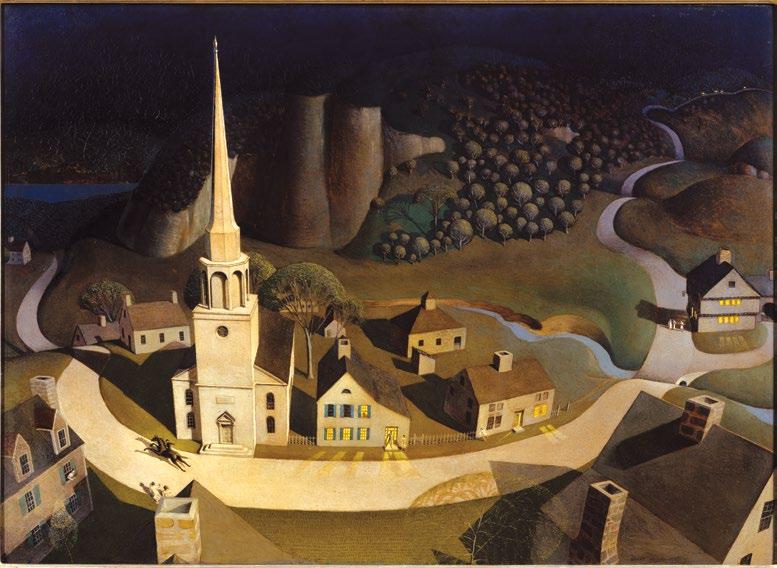




Great Minds® is the creator of Eureka Math® , Wit & Wisdom® , Alexandria Plan™, and PhD Science® .
Published by Great Minds PBC greatminds.org
© 2023 Great Minds PBC. All rights reserved. No part of this work may be reproduced or used in any form or by any means—graphic, electronic, or mechanical, including photocopying or information storage and retrieval systems—without written permission from the copyright holder.
Printed in the USA A-Print
979-8-88588-718-2
Handout 1A: Notice and Wonder Prompt Cards
Handout 3A: Tomás Sentence Frame
Handout 3B: Nouns Chart
Handout 4A: Focusing Question 1 Prompt Handout 4B: Noun Cards
Handout 5A: Frayer Model Handout 6A: Essential Questions Chart
Handout 6B: Frayer Model Handout 7A: Fluency Homework Handout 9A: Past Tense Handout 11A: Focusing Question 2 Prompt Handout 11B: Frayer Model Handout 13A: Fluency Homework/Evaluation
Handout 14A: Frayer Model Handout 15A: Nouns
Handout 15B: Frayer Model Handout 16A: Focusing Question 3 Prompt Handout 17A: Fluency Homework Handout 18A: Story Map Handout 18B: Multiple-Meaning Words Handout 19A: Frayer Model
Handout 21A: Focusing Question Task 4 Handout 22A: Adding Adjectives to Nouns Handout 23A: New-Read Story Map
Handout 23B: Fluency Homework
Handout 23C: Mixed Sentences
Handout 24A: Art Vocabulary
Handout 25A: Sequenced Sentences
Handout 25B: Mixed Sentences
Handout 26A: Focusing Question Task 5 Handout 28A: End-of-Module Task
Handout 28B: Fluency Homework
Handout 29A: Narrative Checklist
Handout 32A: Socratic Seminar Self-Reflection
Wit & Wisdom Family Tip Sheet




. G1 M1 Handout 3A • WIT & WISDOM® Page 1 of 1






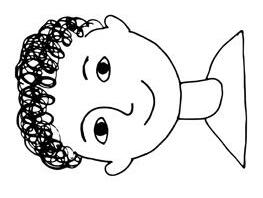
ball car


Directions: Write and illustrate to complete the chart using information from Tomás and the Library Lady , Waiting for the Biblioburro , and That Book Woman . Use one page for each story.
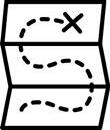

Essential Question: How do books change people’s lives around the world? Main Character
How do books change the character’s life?
Where in the world is this character?
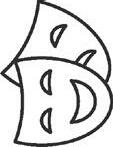
How do books change the character’s life?

Where in the world is this character?

Main Character

Question: How do books change people’s lives around the world?
How do books change the character’s life?

Where in the world is this character?

Main Character

How do books change people’s lives around the world?
Directions: Have an adult initial each day that you read the passage three to five times. Optional: Have a peer sign on the second row of boxes, checking your progress below.
“Someone should write a story about your burros,” Ana tells the librarian, rubbing Alfa’s nose and feeding more grass to Beto.
“Why don’t you?” he asks. Then he packs up the books and is off.
“Enjoy!” he calls to the children. “I will be back.” 45 words
Brown, Monica. Waiting for the Biblioburro. Random House, 2011. Day 1
Name:
Student Performance Checklist:
• Read easily without stumbling.
• Read with appropriate phrasing and pausing.
• Read with appropriate expression for the selection.
• Read at a good pace, not too fast and not too slow.
• Read to be heard and understood.
Teacher Notes:
Directions: Cut out the word cards and the endings. Add the endings to the word cards to make the verbs past tense.
talk move jump lock look help pick imagine bake ed ed ed ed ed ed ed ed ed




Directions: Fill in the information about the word inspire on the Frayer Model. Definition: inspire
Directions: Have an adult initial each day that you read the poem three to five times. Optional: Have a peer sign on the second row of boxes, checking your progress below.
“Museum AB—See!”
“A is for Apple”—I see red, green, gold.
“B is for Boat”—I see lines so bold!
“C is for Cat”—I see fuzzy friends.
“D is for Dance”—I see leaps and bends.
“E is for Egg”—I see ovals round.
“F is for Feet”—I see toes on the ground.
Adapted from The Metropolitan Museum of Art. Museum ABC. Little, Brown Books for Young Readers, 2002. Day 1 Day 2 Day 3 Day 4
Name:
Student Performance Checklist:
• Read easily without stumbling.
• Read with appropriate phrasing and pausing.
• Read with appropriate expression for the selection.
• Read at a good pace, not too fast and not too slow.
• Read to be heard and understood.
Teacher Notes:
Directions: Cut apart the word cards. Place them in front of you so you can read each card.
Directions: Have an adult initial each day that you read the passage three to five times. Optional: Have a peer sign on the second row of boxes, checking your progress below.
I pick a book with words and pictures, too, and hold it out. “Teach me what it says.” And Lark, she does not laugh or even tease, but makes a place, and quiet-like, we start to read. 37 words
Name:
Student Performance Checklist:
• Read easily without stumbling.
• Read with appropriate phrasing and pausing.
• Read with appropriate expression for the selection.
• Read at a good pace, not too fast and not too slow.
• Read to be heard and understood.
Teacher Notes:
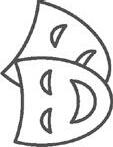


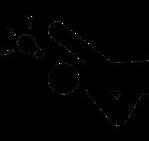
Directions: Fill in the information about the word scholar on the Frayer Model.




• Capitalized first words in a sentence and proper nouns.
• End punctuation.
• A drawing of Cal, Lark, and the Book Woman, and one adjective to describe each of them.
Directions: Choose an adjective from the Adjective Chart to add to each common noun. the checkers the dress the chickens the books




Directions: Have an adult initial each day that you read the passage three to five times. Optional: Have a peer sign on the second row of boxes, checking your progress below.
You do not like them. So you say. Try them! Try them! And you may. Try them and you may, I say.
Sam!
If you will let me be, I will try them. You will see. I do so like green eggs and ham! Thank you! Thank you, Sam-I-am!
Geisel,
Student Performance Checklist:
• Read easily without stumbling.
• Read with appropriate phrasing and pausing.
• Read with appropriate expression for the selection.
• Read at a good pace, not too fast and not too slow.
• Read to be heard and understood.
Teacher Notes:
Directions: Read each sentence and circle the sentences that are interrogative.
• Why does Sam-I-am always appear?
• The main character is quite grumpy.
• Just try them already!
• Green eggs and ham look delicious to me.
• Where did the fox come from?
Directions: Use the graphic organizers to record text evidence of portrait, landscape, and still life.
Page: is for
Page: is for G1 M1 Handout 24A • WIT & WISDOM® Page 1 of 1
Directions: Cut apart the time order word cards. Place the correct word card at the beginning of each sentence.
did not like green eggs and
tried green eggs and ham. Sam liked green eggs and ham.
Directions: Read each sentence and circle the sentences that are imperative.
• Why did Sam-I-am go on the boat?
• Dr. Seuss is a great author.
• Finish your breakfast!
• The goat looks hungry.
• Don’t just stand there!




• Complete sentences.
• Capital letters at the beginning of a sentence and proper nouns.
• End punctuation.
• An adjective to describe a noun.




Name:
• Capitals at the beginning of proper nouns.
• Illustrations to match the words on each page.
Use your best handwriting, as you will read and share your story with your classmates and teacher.
Directions: Have an adult initial each day that you read the poem three to five times. Optional: Have a peer sign on the second row of boxes, checking your progress below.
“Museum AB—See!”
“A is for Apple”—I see red, green, gold. “B is for Boat”—I see lines so bold!
“C is for Cat”—I see fuzzy friends.
“D is for Dance”—I see leaps and bends.
“E is for Egg”—I see ovals round.
“F is for Feet”—I see toes on the ground.
“G is for Game”—I see people play. “H is for Hair”—I see curls of gray.
“I is for Insect”—I see bees that sting. “J is for Jewelry”—I see a gold ring. “K is for Kiss”—I see love and care.
“L is for Light”—I see fires flare. “M is for Monster”—Wait! What did you say? See you later! I’m done for the day! 111 Words
Adapted from The Metropolitan Museum of Art. Museum ABC. Little, Brown Books for Young Readers, 2002.
Day 1 Day 2 Day 3 Day 4
Student Performance Checklist:
• Read easily without stumbling.
• Read with appropriate phrasing and pausing.
• Read with appropriate expression for the selection.
• Read at a good pace, not too fast and not too slow.
• Read to be heard and understood.
Teacher Notes:


Directions: Use the checklist to revise and edit your narrative.
I understand how people around the world get books.
Structure
I have characters.
I have a setting.
I have a problem.
I have a resolution.
Conventions


I use end punctuation. . ? !
I write complete sentences.
Directions: Evaluate your participation in the Socratic Seminar by writing an A, S, or N in the chart below.
A = I always did that.
S = I sometimes did that. N = I’ll do that next time.
I followed our class’s rules for the seminar.
I responded to what others said at least once.
I noticed pauses.
I listened with my whole body.
Name:
Read Aloud
Directions: Share what you know about the importance of books and reading by sharing the answers to one question in each category (Wonder, Organize, Reveal, Distill, Know) below. Draw, write, or tell your teacher your answers.
Student Name: Text: Author: Topic: Genre/type of book:
1. Wonder: Why did you choose this book? What grabbed your attention about the cover or illustrations in the book? Write a sentence or draw a picture showing why you chose it.
Name:
2. Wonder: What kind of details do you notice in the illustrations? When you think about the details you found, what do you wonder about the pictures?
3. Organize: Who is the book mostly about? What is the main character’s biggest problem? How does life change for that character?
4. Organize: How does the main character’s attitude toward books or reading change from the beginning of the story to the end of the story? Answer using these Sentence Frames: a. In the beginning ________________.
5. Reveal: How does the author show us that books can change lives? Find a page in the book where the author shows that books are important.
Name:
6. Reveal: How does the author want us to know about books? Draw a picture that explains one way the author shows or tells us that books can be joyful.
7. Distill: What is the most important idea about books that you learned by reading this story? Draw a picture showing this idea and explain your drawing on the paper or to your teacher.
8. Distill: What new idea about books did you learn from reading this story? Draw a picture showing this important lesson.
9. Know: How does this story connect to the other stories you have read in class about the importance of books and reading?
10. Know: What is an idea that you think kids and adults should know about why books are important and valuable?
Wit & Wisdom is our English curriculum. It builds knowledge of key topics in history, science, and literature through the study of excellent texts. By reading and responding to stories and nonfiction texts, we will build knowledge of the following topics:
Module 1: A World of Books
Module 2: Creature Features
Module 3: Powerful Forces
Module 4: Cinderella Stories
In this first module, A World of Books, we will study the power of books and libraries around the world. Some people have climbed mountains just to find books. Others have trekked to libraries on boats or even on elephants. In this module, we will ask the question: How do books—and the knowledge they bring—change lives around the world?
OUR CLASS WILL READ THESE BOOKS:
Picture Books (Informational)
Museum ABC, The Metropolitan Museum of Art
My Librarian Is a Camel, Margriet Ruurs
Picture Books (Literary)
Tomás and the Library Lady, Pat Mora and Raul Colon
Waiting for the Biblioburro, Monica Brown and John Parra
That Book Woman, Heather Henson and David Small
Green Eggs and Ham, Dr. Seuss
OUR CLASS WILL WATCH THESE VIDEOS:
“Biblioburro: The Donkey Library,” Ebonne Ruffins, CNN
“Pack Horse Librarians,” SLIS Storytelling
OUR CLASS WILL EXAMINE THIS PAINTING:
The Midnight Ride of Paul Revere, Grant Wood
How do library books change life for Tomás?
How does the Biblioburro change life for Ana?
How do people around the world get books? How does the packhorse librarian change life for Cal? How do books change my life?
As you read with your first grade student, ask: What do you notice and wonder?
Poppleton, Cynthia Rylant Rain School, James Rumford Library Lion, Michelle Knudsen Abe Lincoln: The Boy Who Loved Books, Kay Winters and Nancy Carpenter
Biblioburro: A True Story from Columbia, Jeanette Winter
The Stone Lion, Margaret Wild
You Wouldn’t Want to Live Without Books!, Alex Woolf
Thank You, Mr. Falker, Patricia Polacco Wild about Books, Judy Sierra
The Library, Sarah Stewart
Visit the local library together. Ask the librarian:
What is the history of the library?
When was the library built?
Who built the library? How many people visit the library each year? What programs does the library offer?
Great Minds® has made every effort to obtain permission for the reprinting of all copyrighted material. If any owner of copyrighted material is not acknowledged herein, please contact Great Minds® for proper acknowledgment in all future editions and reprints of this module.
All material from the Common Core State Standards for English Language Arts & Literacy in History/Social Studies, Science, and Technical Subjects © Copyright 2010 National Governors Association Center for Best Practices and Council of Chief State School Officers. All rights reserved.
All images are used under license from Shutterstock.com unless otherwise noted.
For updated credit information, please visit http://witeng.link/credits.
The following writers, editors, reviewers, and support staff contributed to the development of this curriculum.
Karen Aleo, Elizabeth Bailey, Ashley Bessicks, Sarah Brenner, Ann Brigham, Catherine Cafferty, Sheila Byrd-Carmichael, Lauren Chapalee, Emily Climer, Rebecca Cohen, Elaine Collins, Julia Dantchev, Beverly Davis, Shana Dinner de Vaca, Kristy Ellis, Moira Clarkin Evans, Marty Gephart, Mamie Goodson, Nora Graham, Lindsay Griffith, Lorraine Griffith, Christina Gonzalez, Emily Gula, Brenna Haffner, Joanna Hawkins, Elizabeth Haydel, Sarah Henchey, Trish Huerster, Ashley Hymel, Carol Jago, Mica Jochim, Jennifer Johnson, Mason Judy, Sara Judy, Lior Klirs, Shelly Knupp, Liana Krissoff, Sarah Kushner, Suzanne Lauchaire, Diana Leddy, David Liben, Farren Liben, Brittany Lowe, Whitney Lyle, Stephanie Kane-Mainier, Liz Manolis, Jennifer Marin, Audrey Mastroleo, Maya Marquez, Susannah Maynard, Cathy McGath, Emily McKean, Andrea Minich, Rebecca Moore, Lynne Munson, Carol Paiva, Michelle Palmieri, Tricia Parker, Marya Myers Parr, Meredith Phillips, Eden Plantz, Shilpa Raman, Rachel Rooney, Jennifer Ruppel, Julie Sawyer-Wood, Nicole Shivers, Danielle Shylit, Rachel Stack, Amelia Swabb, Vicki Taylor, Melissa Thomson, Lindsay Tomlinson, Tsianina Tovar, Sarah Turnage, Melissa Vail, Keenan Walsh, Michelle Warner, Julia Wasson, Katie Waters, Sarah Webb, Lynn Welch, Yvonne Guerrero Welch, Amy Wierzbicki, Margaret Wilson, Sarah Woodard, Lynn Woods, and Rachel Zindler
We are grateful for the many educators, writers, and subject-matter experts who made this program possible.
David Abel, Robin Agurkis, Sarah Ambrose, Rebeca Barroso, Julianne Barto, Amy Benjamin, Andrew Biemiller, Charlotte Boucher, Adam Cardais, Eric Carey, Jessica Carloni, Dawn Cavalieri, Janine Cody, Tequila Cornelious, David Cummings, Matt Davis, Thomas Easterling, Jeanette Edelstein, Sandra Engleman, Charles Fischer, Kath Gibbs, Natalie Goldstein, Laurie Gonsoulin, Dennis Hamel, Kristen Hayes, Steve Hettleman, Cara Hoppe, Libby Howard, Gail Kearns, Lisa King, Sarah Kopec, Andrew Krepp, Shannon Last, Ted MacInnis, Christina Martire, Alisha McCarthy, Cindy Medici, Brian Methe, Ivonne Mercado, Patricia Mickelberry, Jane Miller, Cathy Newton, Turi Nilsson, Julie Norris, Tara O’Hare, Galemarie Ola, Tamara Otto, Christine Palmtag, Dave Powers, Jeff Robinson, Karen Rollhauser, Tonya Romayne, Emmet Rosenfeld, Mike Russoniello, Deborah Samley, Casey Schultz, Renee Simpson, Rebecca Sklepovich, Kim Taylor, Tracy Vigliotti, Charmaine Whitman, Glenda Wisenburn-Burke, and Howard Yaffe
The following early adopters provided invaluable insight and guidance for Wit & Wisdom:
Bourbonnais School District 53 • Bourbonnais, IL
Coney Island Prep Middle School • Brooklyn, NY
Gate City Charter School for the Arts • Merrimack, NH
Hebrew Academy for Special Children • Brooklyn, NY
Paris Independent Schools • Paris, KY
Saydel Community School District • Saydel, IA
Strive Collegiate Academy • Nashville, TN
Valiente College Preparatory Charter School • South Gate, CA
Voyageur Academy • Detroit, MI
Design Direction provided by Alton Creative, Inc.
Project management support, production design and copyediting services provided by ScribeConcepts.com
Copyediting services provided by Fine Lines Editing
Product management support provided by Sandhill Consulting
